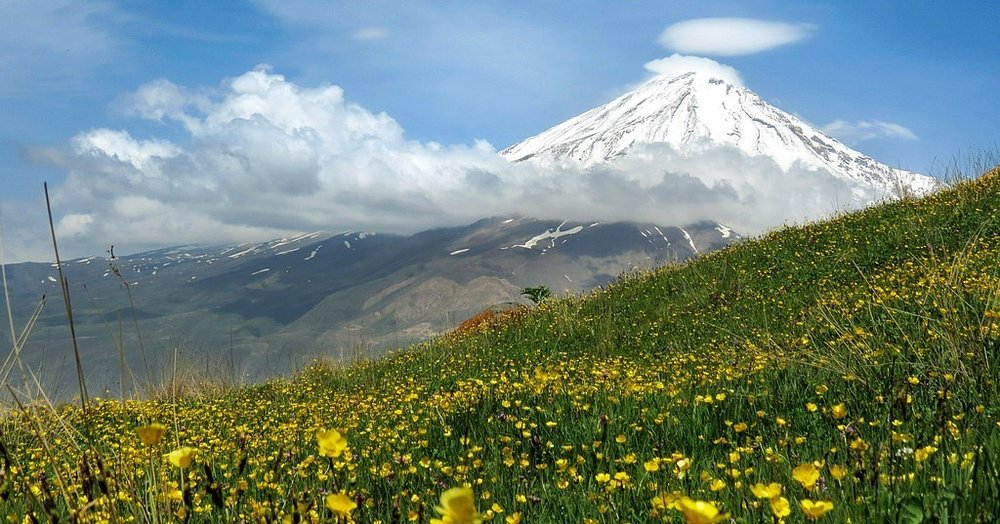International Mountain Day: Mountains are vital for our lives

TEHRAN — Almost one billion people live in mountain areas, and over half the human population depends on mountains for water, food and clean energy. However, according to the United Nations, mountains are under threat from climate change, land degradation, over exploitation and natural disasters, with potentially far-reaching and devastating consequences, both for mountain communities and the rest of the world.
Mountains are early indicators of climate change and as global climate continues to warm, mountain people — some of the world’s hungriest and poorest — face even greater struggles to survive. The rising temperatures also mean that mountain glaciers are melting at unprecedented rates, affecting freshwater supplies downstream for millions of people. Mountain communities, however, have a wealth of knowledge and strategies accumulated over generations, on how to adapt to climate variability.
Climate change, climate variability and climate-induced disasters, combined with political, economic and social marginalization, increase the vulnerability of mountain peoples to food shortages and extreme poverty. Currently, 1 in 3 people in developing countries is estimated to be vulnerable to food insecurity.
As the vulnerability of mountain populations grows, migration increases both abroad and to urban centers. Those who remain are often women, left to manage the farms but with little access to credit, training and land tenure rights. Out-migration from mountain areas will also result in an inestimable loss in terms of provision of ecosystem services and preservation of cultural and agro-biodiversity. Investments and policies can alleviate the harsh living conditions of mountain communities and reverse out-migration trends from mountain areas.
Iran’s Mount Damavand a victim of waste
According to a report by Fars news agency published on Tuesday on average every week some 1 ton of waste is collected from the southern part of the area as mountain climbers dump their waste in the region.
Abbas Mohammadi a member of Alpine Club of Iran told Fars news agency that climbing mount Damavand should be regulated.
The waste strew around in the area will result in soil erosion, Mohammadi regretted.
Mount Damavand, an inactive volcano and the highest peak in the Middle East, is now being threatened by land use change and mining activities as well as waste.
The mountain’s environment is pretty vulnerable up to an elevation of 4,000 meters while the protected areas stretch from the elevation of 4,200 meters to the peak and unfortunately most human activities that endanger the environment, such as overgrazing, land use change, and mining activities normally occur at lower elevation.
Mount Damavand is the highest elevation about 5,628 meters. It is an inactive volcanic mountain which was activated in Quaternary Period. It has numerous thermal springs. The peak of Damavand covers permanently snow during the entire year. The most important thermal springs are Ask and Larijan. The flora and fauna is very rich and include about 2000 plant species. There are numerous endemic species which are important to flora of world.
International Mountain Day 2018 theme: “#MountainsMatter”
Even though they are mentioned in the 2030 Agenda, mountains are still often forgotten. Considering the crucial role they play in providing key ecosystem goods and services to the planet and their vulnerability in the face of climate change, we need to step up and raise attention to mountains.
Water as mountains are the world’s ‘water towers’, providing between 60 and 80 percent of all freshwater resources for our planet.
Disaster Risk Reduction as climatic variations are triggering disasters.
Tourism as mountain destinations attract around 15-20 percent of global tourism and are areas of important cultural diversity, knowledge and heritage.
Food as they are important centers of agricultural biodiversity and are home to many of the foods that come to our table, such as rice, potatoes, quinoa, tomatoes and barley.
Youth as despite the beautiful landscapes, life in the mountains can be tough, particularly for rural youth.
Indigenous Peoples as many mountain areas host ancient indigenous communities that possess and maintain precious knowledge, traditions and languages.
Biodiversity as half of the world’s biodiversity hotspots are concentrated in mountains and mountains support approximately one-quarter of terrestrial biological diversity.
International Mountain Day 2018 celebrated on December 11 is an occasion to create a large social movement that can bring mountain issues on the tables of politicians. Through a global campaign, a social media strategy and events around the world, FAO plans to tell the world that the current neglect of mountains and mountain peoples must stop.
MQ/MG
